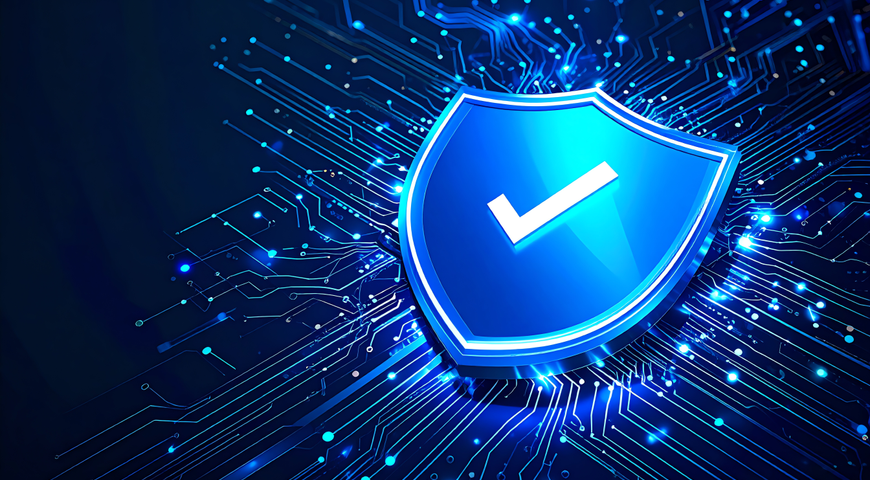With a news cycle that is constantly churning out content, it might seem impossible to stay up-to-date. Whether you’re wondering about the emerging innovations in blockchain technology, the increasing deviousness of ransomware infections, or the secrecy of major tech corporations—we’ve got you covered.
What did you miss in tech this week?
Ransomware in phishing emails
The leader in phishing solutions, PhishMe Inc., released a report that shows ransomware attacks hidden in phishing emails grew from 92% in Q1 to 97.25% in Q3 of 2016, Businesswire reports.
Leading the infection pack is the Locky encryption ransomware, and the report shows that it’s not going away anytime soon.
This growth in ransomware encrypted emails means that other forms of infection have shrunk—only 2.75% of these emails containing other malware infections.
Another trend found by PhishMe’s report is the increase in “quiet malware.” These are Trojan malware infections that quietly infect a system and lay dormant in the network for extended periods of time.
“The rapid awareness of and attention to ransomware has forced threat actors to pivot and iterate their tactics on both payload and delivery tactics. This sustained tenacity shows that awareness of phishing and threats is not enough,” said PhishMe CEO and Co-founder Rohyt Belani.
He further proposed increasing vigilance and awareness not only about ransomware, but other malicious malware infections.
“We must empower people to act as both human sensors for detecting attacks and partners in preventing threat actors from succeeding.”
RELATED: The Monster Under Your Bed Is Real, and Its Name Is Ransomware
iPhone data synced without consent
If you’re an iPhone user, your call history might not be as private as you think.
It appears that against the consent of the user, call history is being synced and stored in the cloud where it is available to third parties, according to Threatpost. As of right now, users can’t opt out of sending their call information—such as who they called, when they called, calls they missed, calls they rejected, and call duration—to the cloud.
This becomes a problem not only because it can be accessed by third parties, but because it’s also visible on multiple devices sharing the same Apple iCloud account.
Other than being able to see basic call history information on multiple devices sharing an iCloud account, Apple iCloud users can’t access this information themselves, but it can be extracted by Apple, the police, and third party tools.
This news comes from a report released on Thursday by Elcomsoft, a forensic tool maker and one of the third party tools able to access this private information.
Apple has yet to address these concerns.
Blockchain is entering healthcare
Blockchain isn’t just for Bitcoin anymore.
Earlier this year, the HHS’s Office of the National Coordinator for Health Information Technology started a contest to accumulate ideas on how to integrate blockchain technology into the world of healthcare, specifically in the management of digital health records. More than 70 white papers were submitted, according to CIO.
"We thought cybercurrency was the killer app for blockchain. But just as we figured out that we could do a lot more on wired networks than talk to each other, the innovation on blockchain is around what else we can do. This is going to drive a lot of efficiencies and innovation, and it's going to lead to the creation of new products and services that really change the way we do things," said Electronic Transactions Association CEO Jason Oxman.
Though blockchain technology has become synonymous with Bitcoin and digital currency, innovators are looking to push the technology into other industries due to its secure and transparent process. Its decentralization, however gives rise to questions over accountability and responsibility if something goes wrong.
Blockchain technology is full of potential—the only question that remains is what industry will take advantage of this potential first.
RELATED: What Is Blockchain and What Does It Mean for Data Protection?
Ransomware just got personal
Ransomware attackers are personalizing their attacks, according to ZDNet
A new ransomware infection is taking to social media. The infection has been dubbed “Ransoc” due to its connection to social channels including Facebook, LinkedIn, and Skype.
Ransoc uses the users’ files against them, and it’s the first of its kind. It searches for images, downloads, and private information on the user’s computer and composes a ransom note featuring this data, normally in a form of a legal action letter. It’s a newer form of ransomware, but it’s quickly growing in frequency.
What also sets Ransoc apart from other forms of ransomware is that it makes its victims pay with a credit card instead of Bitcoin.
There is a light at the end of the proverbial tunnel, however. Because of how it infects your system, rebooting your computer to Safe Mode will likely get rid of the Ransoc infection.
RELATED: There Are Many Ways to Repel Ransomware, Only One Way to Defeat It
About Acronis
A Swiss company founded in Singapore in 2003, Acronis has 15 offices worldwide and employees in 50+ countries. Acronis Cyber Protect Cloud is available in 26 languages in 150 countries and is used by over 21,000 service providers to protect over 750,000 businesses.



